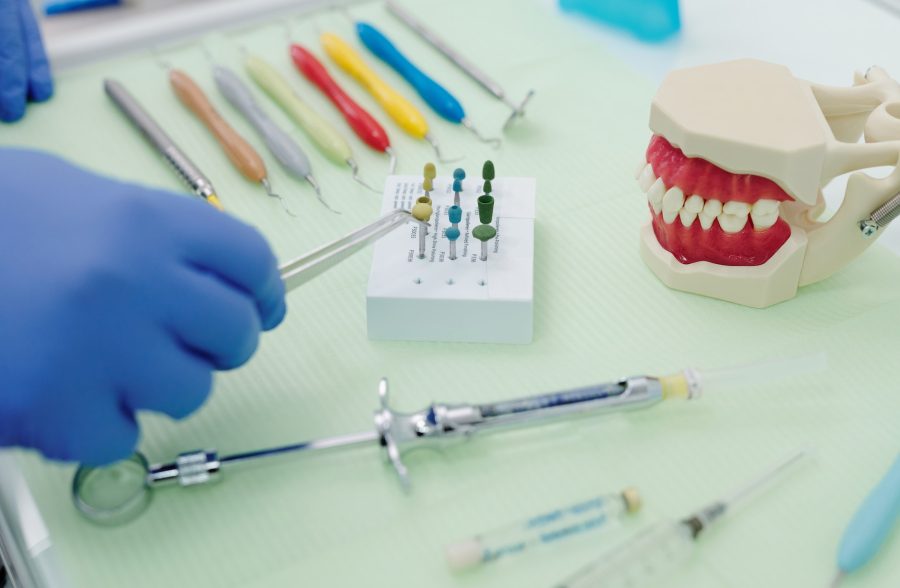A healthy smile involves a lot more than just brushing and flossing. An often overlooked aspect of oral health is gum health. Gum disease is a common but serious condition that can lead to severe dental issues if left untreated.
At About Smiles, your trusted Sydney-based dental practice, we believe in empowering our patients with the knowledge they need to ensure their dental health is in the best possible condition. This blog will be your one-stop online destination to learn about the causes, symptoms and treatments for gum disease.
What is gum disease?
Gum disease is a bacterial infection that affects the tissues supporting the teeth. It begins with plaque build-up, a sticky film of bacteria, on the teeth and gums. Over time, if not sufficiently removed through regular brushing and flossing, plaque hardens into tartar, which is more difficult to remove and provides a breeding ground for harmful bacteria.
This can lead to inflammation of the gums, causing the earliest stage of gum disease, known as gingivitis. It’s this build-up of plaque and tartar that can lead to tooth decay and further stages of gum disease, known as periodontitis. If left untreated, periodontitis can cause tooth loss.
The causes of gum disease
To help prevent gum disease, remember to avoid the following where possible:
- Poor oral hygiene — Improper brushing and flossing habits can contribute to the buildup of plaque and tartar. Tartar is more difficult to remove and requires a professional cleaning instead of regular tooth brushing and flossing. Since plaque and tartar are filled with bacteria, the longer they remain on your teeth, the more they are exposed to damage. You should brush and floss daily to prevent plaque buildup.
- Tobacco use — Smoking or chewing tobacco can increase the risk of gum disease. Quit smoking or chewing tobacco to reduce your risk of gum disease.
- Poor nutrition — A diet lacking essential nutrients can weaken the immune system and make the gums more prone to infection. Maintain a balanced diet of vitamins and minerals for strong gums and teeth.
- Medical conditions — Certain conditions like diabetes and autoimmune disorders can increase the risk of gum disease. Since stress can contribute to a weakened immune system, causing infections, stress management techniques like exercise or mindfulness may help boost your immune response.
- Hormonal changes — Hormonal fluctuations, such as during puberty, menstruation, using oral contraceptives, pregnancy or menopause, can make the gums more sensitive and prone to inflammation.
Gum disease symptoms
If your gums are healthy, they should be firm and fit snugly around your teeth. The colour of healthy gums can vary from person to person, whether it’s light pink, dark pink or brown.
Symptoms of gum disease to look out for include:
- Bleeding gums — Gums that bleed easily while brushing or flossing are a common symptom of gum disease. You may notice your toothbrush or floss turning pink after brushing or flossing or the sight of blood in the sink after spitting out your toothpaste.
- Swollen or red gums — Inflammation is a key indicator of gum disease. You will notice bright red, dark red or dark purple gums that are swollen or puffy. Your gums will feel tender to the touch, and you may experience pain while chewing food.
- Bad breath — Persistent bad breath can indicate an underlying gum infection.
- Receding gums — Gums that appear to be pulling away from the teeth, making your teeth look longer than usual, can be a sign of advanced gum disease.
- Loose teeth — As gum disease progresses, it can lead to the loss of bone supporting the teeth, causing them to become loose. You may also notice new spaces forming between your teeth that look like black triangles.
Gum disease treatments
Gum disease will lead to systemic health conditions that further damage your teeth if left untreated. Treatments for gum disease will vary depending on the extent of the damage. By booking a consultation with our experienced dental team at About Smiles, you can rely on expert advice on how to proceed. Treatments for gum disease include:
- Professional cleaning — Scaling and root planing are non-surgical procedures that remove plaque and tartar buildup from below the gum line.
- Medications — Our dentists may prescribe antibiotics, antimicrobial mouthwashes and enzyme suppressants to control bacterial infection and inflammation.
- Surgical procedures — In advanced cases, surgical treatments like periodontal surgery may be necessary to remove plaque and tartar and restore gum health.
- Lifestyle changes — Quitting smoking, adopting a balanced diet and managing medical conditions can help prevent and manage gum disease.
- Regular check-ups — Routine dental visits at About Smiles allow our professionals to monitor your oral health and catch gum disease in its early stages.
Book a consultation at About Smiles and take active steps to help prevent gum disease
At About Smiles, we believe a healthy smile starts with healthy gums. By incorporating good oral hygiene practices into your everyday routine, making healthy lifestyle choices and seeking professional dental care or cosmetic dentistry, you can take steps to prevent and manage gum disease. Contact us at About Smiles for expert guidance and personalised care on your journey to optimal gum health.
